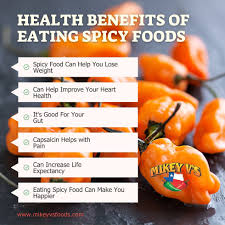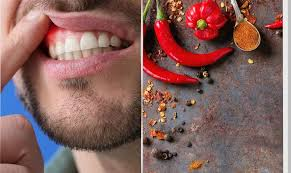The Effects of Spicy Food on Health in the Summer Season
As temperatures climb during the summer months, our dietary choices often shift. Many people instinctively reach for cooling foods like fruits, salads, and chilled drinks. Yet, in many cultures—particularly in tropical and subtropical regions—spicy foods remain a staple even in the heat. This raises an interesting question: how does eating spicy food in summer affect our health?
Contrary to what some might expect, spicy food can have both positive and negative effects on the body during hot weather. Understanding these effects requires a look into the science of spice, the physiology of heat regulation, and cultural habits that have evolved over generations.
Understanding the Spice: What Makes Food Hot?
The primary compound responsible for the “heat” in spicy food is capsaicin, found in chili peppers. Capsaicin binds to pain receptors in the mouth and on the skin, triggering a burning sensation. Interestingly, this interaction also has a variety of physiological effects:
-
Increased heart rate
-
Sweating (perspiration)
-
Temporary rise in body temperature
-
Stimulation of endorphins (natural painkillers and mood enhancers)
These responses play a key role in how spicy food interacts with our bodies in hot weather.
Positive Effects of Spicy Food in Summer
1. Promotes Sweating and Cooling
One of the most surprising benefits of eating spicy food in summer is its cooling effect through perspiration. When you eat spicy food, your internal body temperature may rise temporarily, but the increased sweating helps dissipate body heat. This is a form of evaporative cooling and is especially effective in dry climates.
Cultures in countries like India, Thailand, and Mexico—where summers can be extremely hot—have long incorporated spicy foods into their cuisine. The body sweats more, and as the sweat evaporates, it cools the skin, helping people adapt to the heat more efficiently.
2. Boosts Metabolism
Capsaicin has been shown to increase metabolic rate by generating heat in the body—a process known as diet-induced thermogenesis. This can be beneficial during summer when people may feel sluggish due to the heat. A temporary metabolic boost can enhance energy and improve digestion.
3. Kills Harmful Bacteria
Summer often brings a higher risk of foodborne illnesses due to faster spoilage in the heat. Spices like chili, garlic, turmeric, and cumin have natural antimicrobial properties. They help reduce the growth of harmful bacteria in food, potentially lowering the risk of infections and stomach issues.
4. Improves Circulation
Capsaicin can improve blood flow and dilate blood vessels, aiding circulation. Better circulation may help the body distribute heat more evenly and potentially prevent heat-related complications like heat cramps or fatigue.
5. Enhances Mood and Appetite
The endorphin rush from spicy food can combat the common summer problem of loss of appetite. In hot weather, people often feel less hungry, but spicy food can stimulate the appetite and make meals more satisfying.
Negative Effects of Spicy Food in Summer
Despite the benefits, spicy food in summer isn’t ideal for everyone. The effects can vary based on individual health conditions, the amount of spice consumed, and how the food is prepared.
1. Can Exacerbate Dehydration
Spicy food induces sweating, which can lead to fluid loss. If not compensated with increased water intake, this can result in dehydration, especially in very hot or humid environments. Signs include dry mouth, fatigue, dizziness, and dark-colored urine.
People who already struggle to stay hydrated in summer might want to limit extremely spicy meals or ensure they drink plenty of fluids before and after eating.
2. May Aggravate Gastrointestinal Issues
For individuals with conditions like acid reflux, gastritis, or irritable bowel syndrome (IBS), spicy food can trigger discomfort. Capsaicin can irritate the lining of the stomach or intestines, leading to bloating, cramps, or acid reflux, especially when combined with heat-induced stress.
3. Risk of Heat Exhaustion
In very high temperatures, excessive sweating without proper hydration and electrolyte replacement can lead to heat exhaustion. While spicy food-induced sweating has benefits, it should be balanced with proper nutrition and hydration.
4. Increased Skin Sensitivity
Some people find that spicy food makes them more prone to skin irritation, rashes, or acne, especially in humid summer conditions. This is possibly due to increased sebum production and perspiration.
Cultural Perspective: Why Spicy Food is Popular in Hot Climates
It may seem counterintuitive, but some of the world’s spiciest cuisines come from the hottest regions. Why is this?
-
Historical preservation: Before refrigeration, spices helped preserve food and prevent bacterial growth.
-
Appetite stimulation: In hot weather, appetite decreases. Spices stimulate taste buds and make food more appealing.
-
Thermoregulation: As discussed, sweating caused by spices helps cool the body.
This cultural wisdom, passed through generations, shows a deep intuitive understanding of how spicy foods can help people adapt to their environments.
Tips for Consuming Spicy Food in Summer
If you enjoy spicy food and want to continue eating it during the summer, here are a few tips to do so safely:
-
Stay Hydrated: Drink water regularly, and consider electrolyte-rich drinks like coconut water or sports drinks.
-
Pair with Cooling Foods: Combine spicy dishes with yogurt, cucumbers, or mint to counteract the heat.
-
Avoid Spicy Food During Peak Heat: Eat spicier meals during cooler parts of the day, such as early morning or evening.
-
Listen to Your Body: If you experience digestive issues or discomfort, scale back on the spice and try milder options.
-
Cook Light: Avoid heavy, greasy spicy foods, which can worsen digestion in the heat. Opt for grilled, steamed, or lightly sautéed preparations.
Conclusion
Spicy food can be both a friend and foe during the summer season. On one hand, it promotes cooling through sweating, boosts metabolism, and protects against bacteria. On the other, it can cause dehydration, digestive issues, and exacerbate heat stress if not consumed mindfully.
Understanding your body’s needs and the local climate is essential. For most healthy individuals, moderate consumption of spicy food in summer—when paired with hydration and balanced meals—can be perfectly safe and even beneficial. As with all things, moderation and mindfulness are key.
href="https://blogger.https://machinemerrimentresent.com/kpy542ijrm?key=374ad52b1da5daf69e0cea67de52cbfc.com/img/b/R29vZ2xl/AVvXsEi66FKoVH-NncN8ovOG0MUir9jmhafD2gx5ObC6SffHXku_Akdw-InDdy3EjD1U86OpqXWHcB-GFs2nNpCQu_QsUYOu_XD5M6tT-XiQk9ZX8q1MOVhUx0ZMDU6mGeJkt4yTe3_vxgs48vxLjS3C-xovfgYsn3bV8VrV_w7CfHwlWGpG9zHWv31w0awHYLFo/s355/download.jpg" style="margin-left: 1em; margin-right: 1em;" target="_blank">





